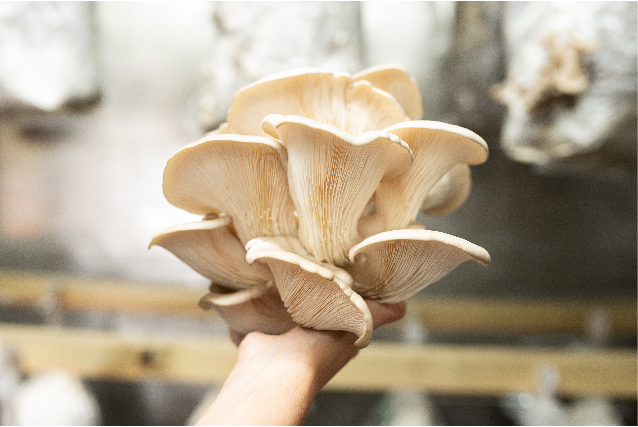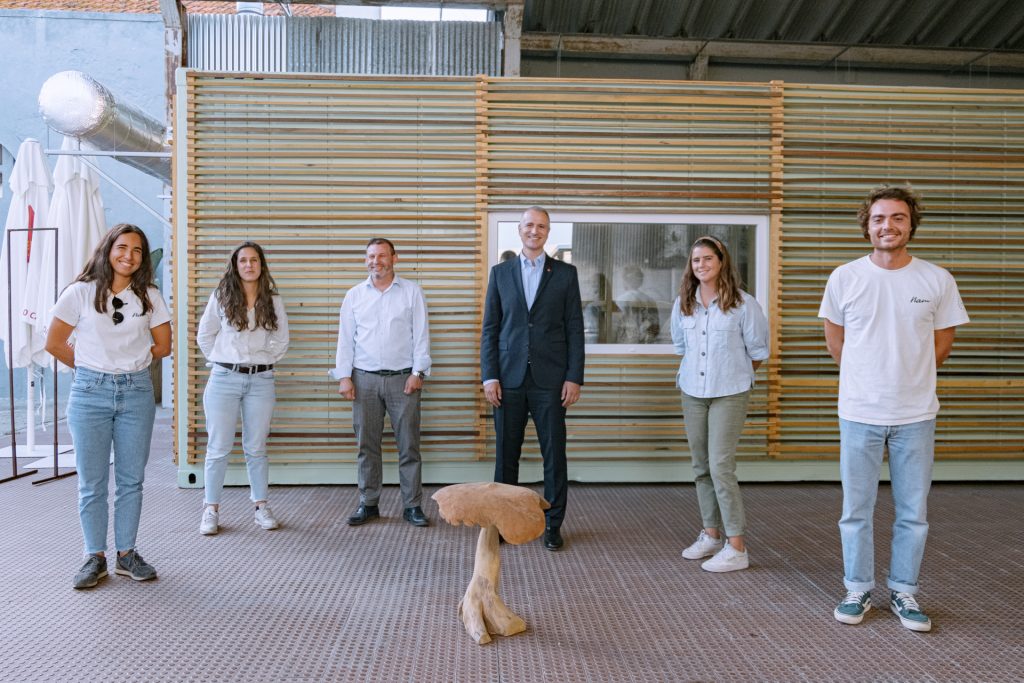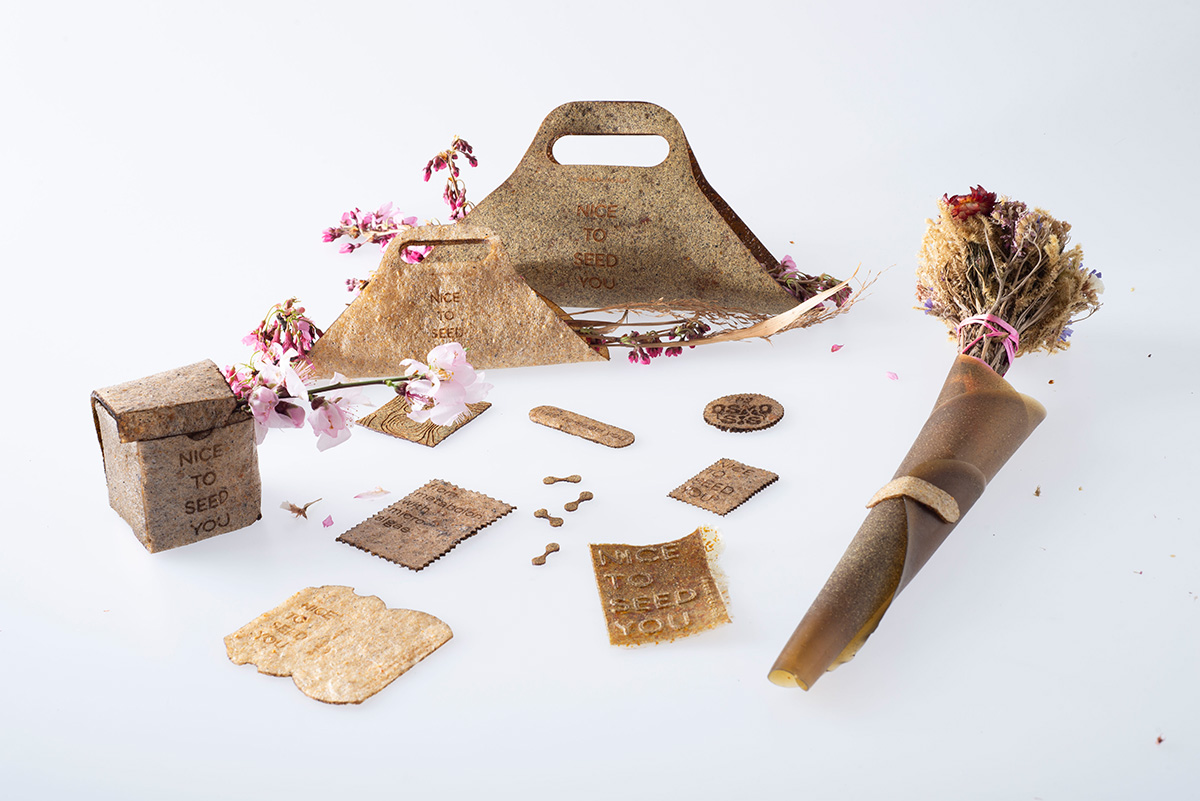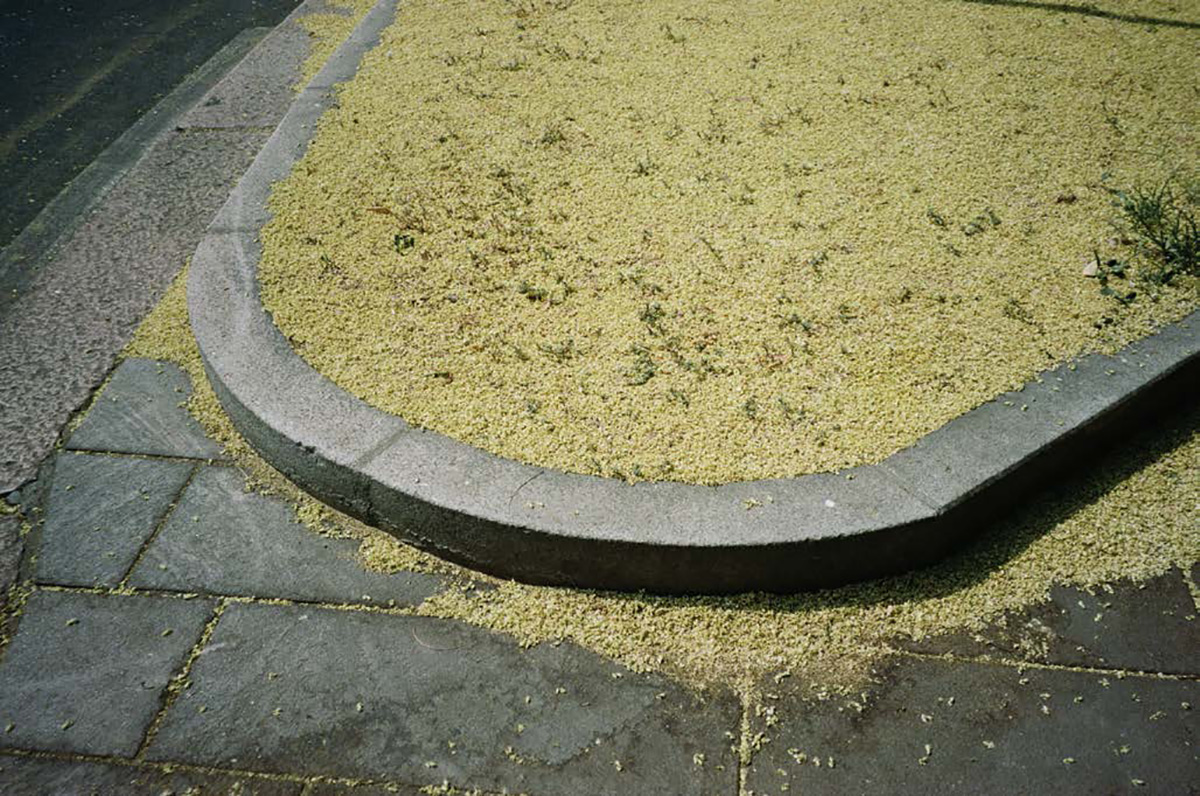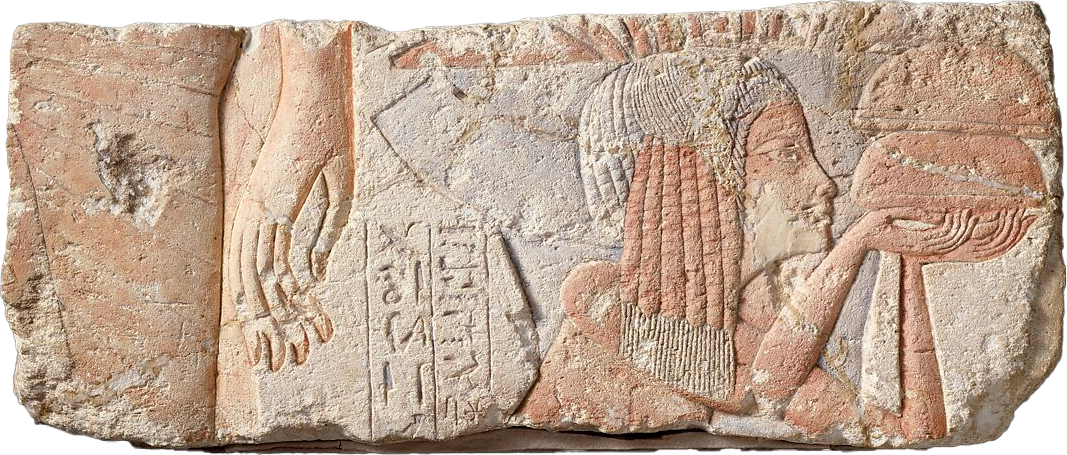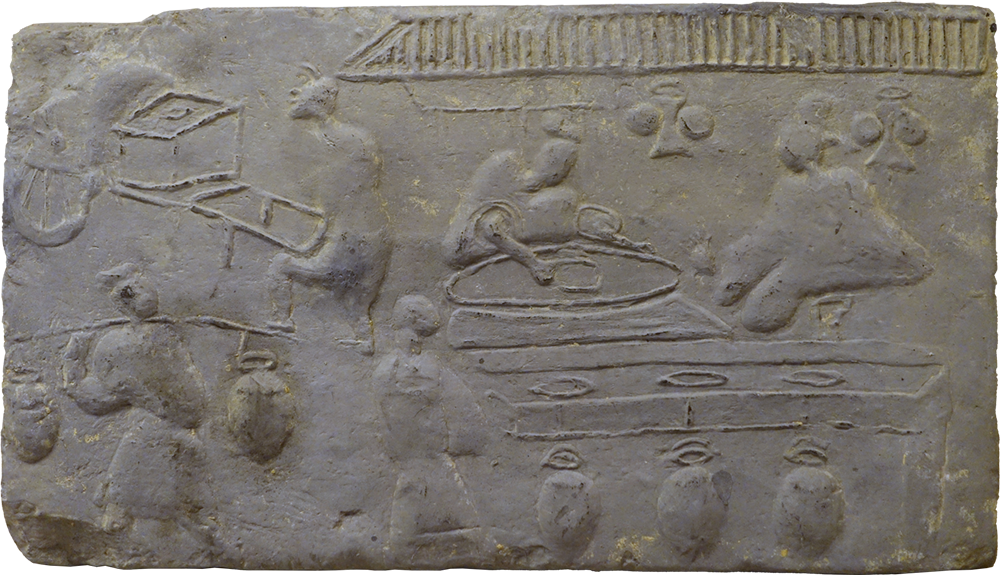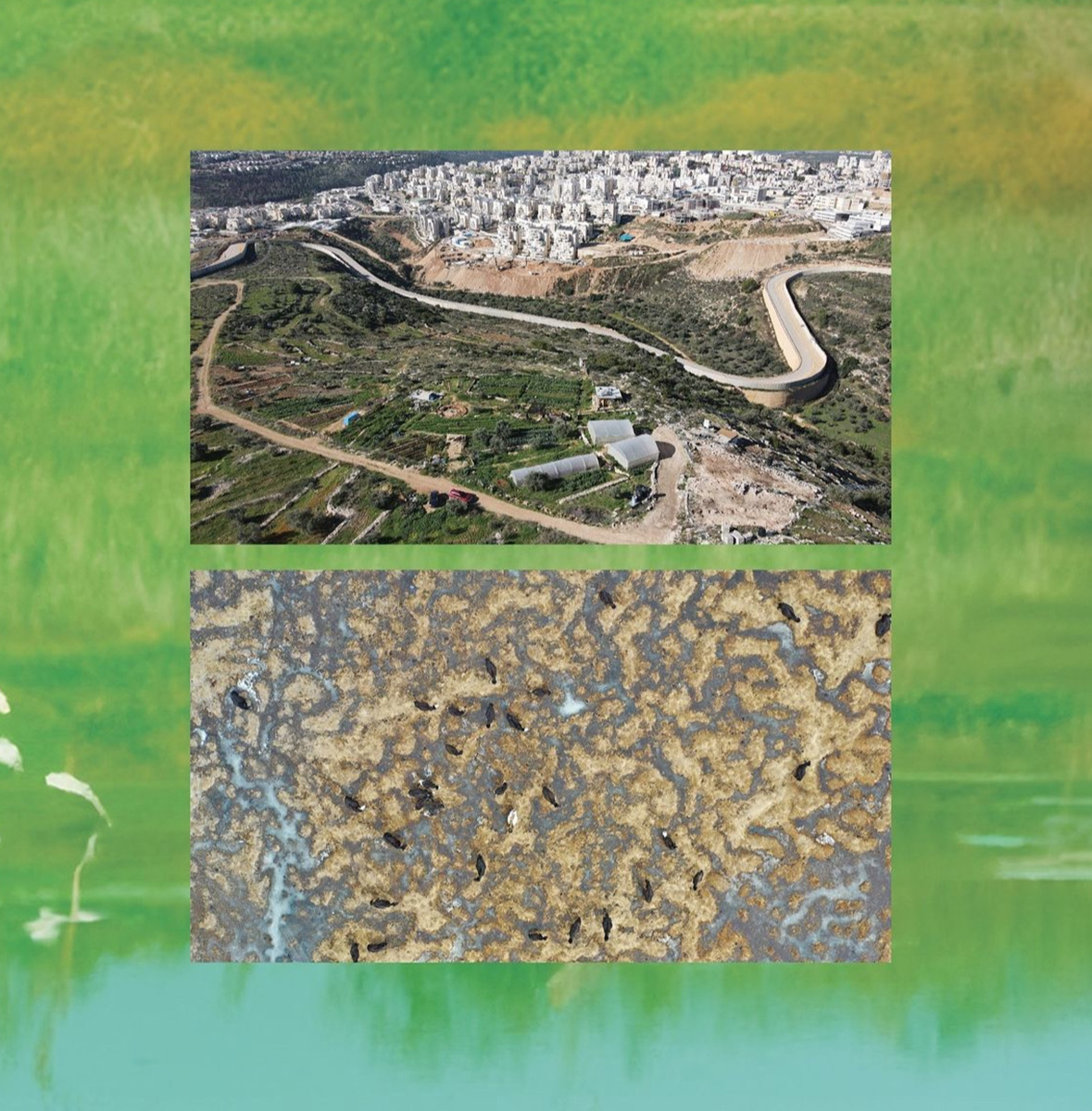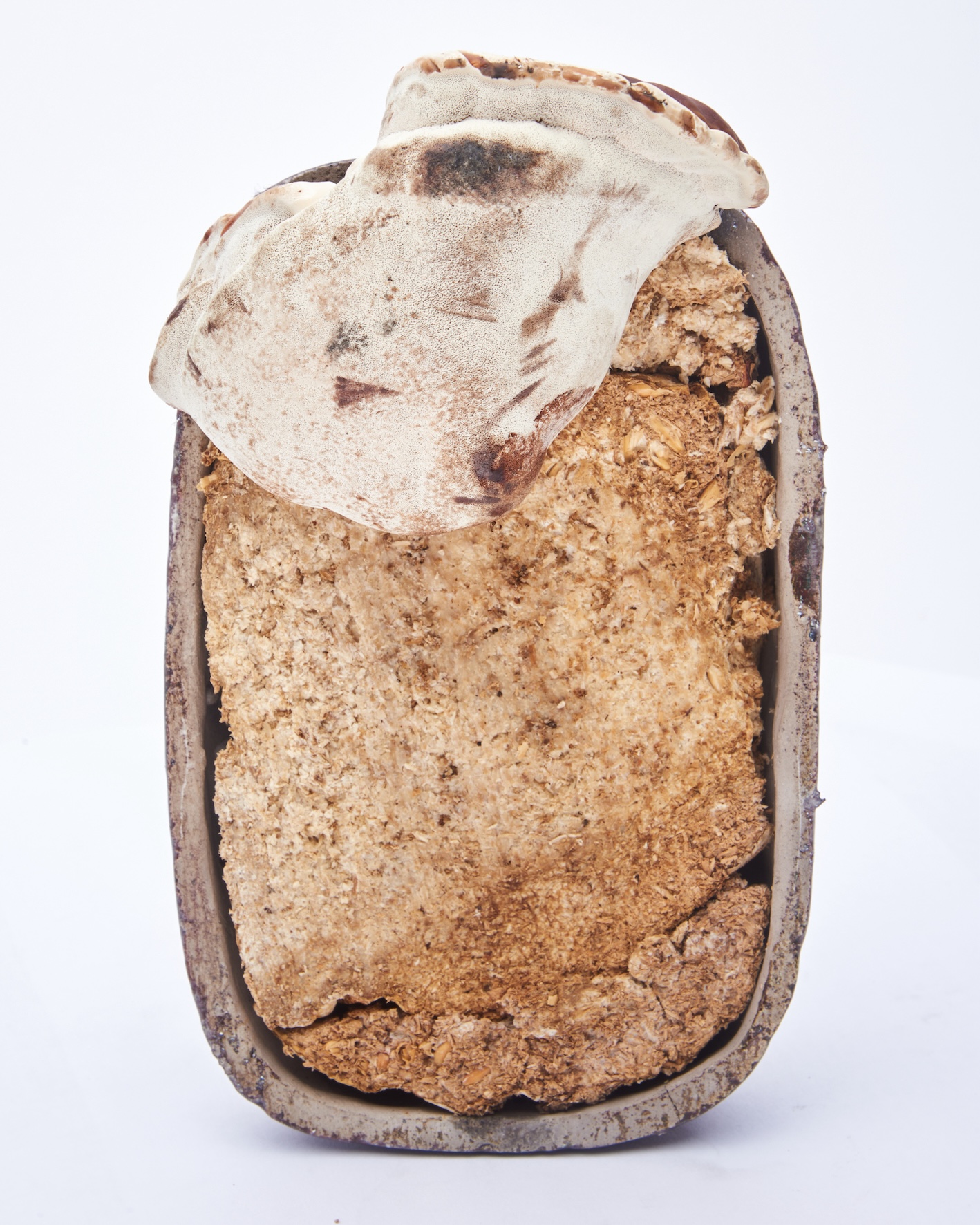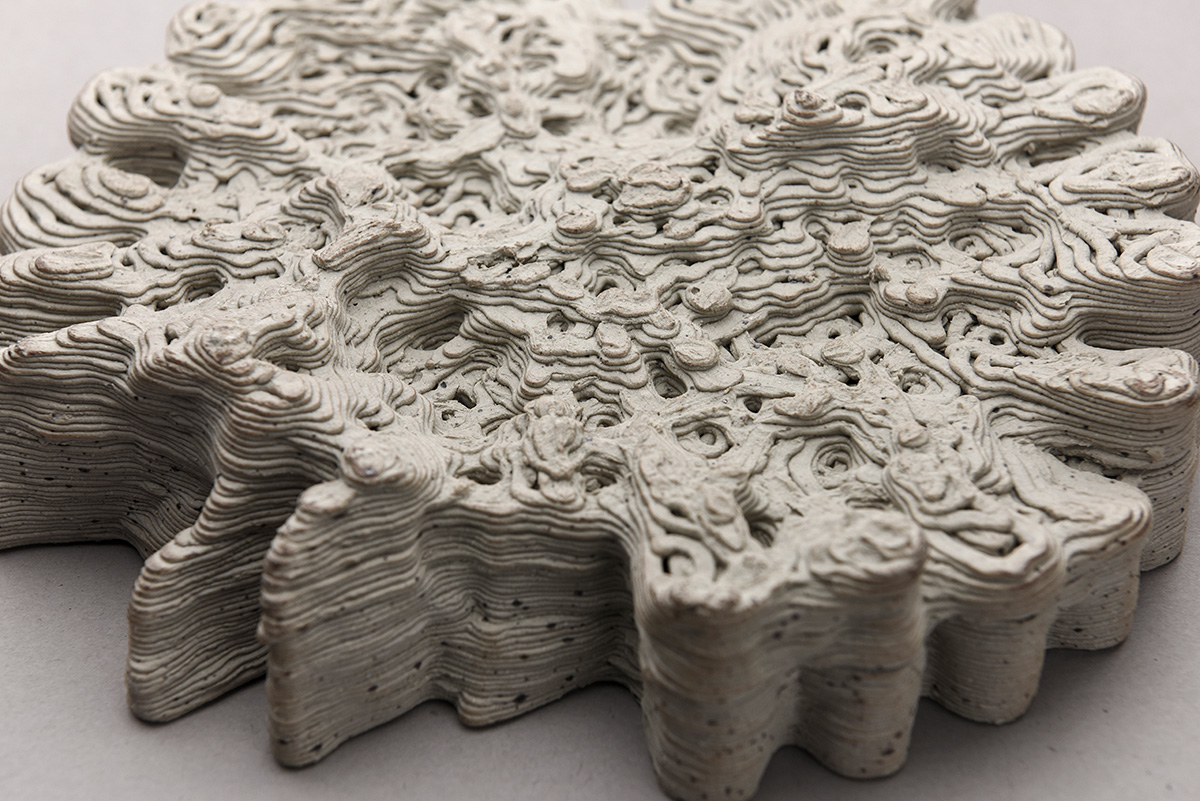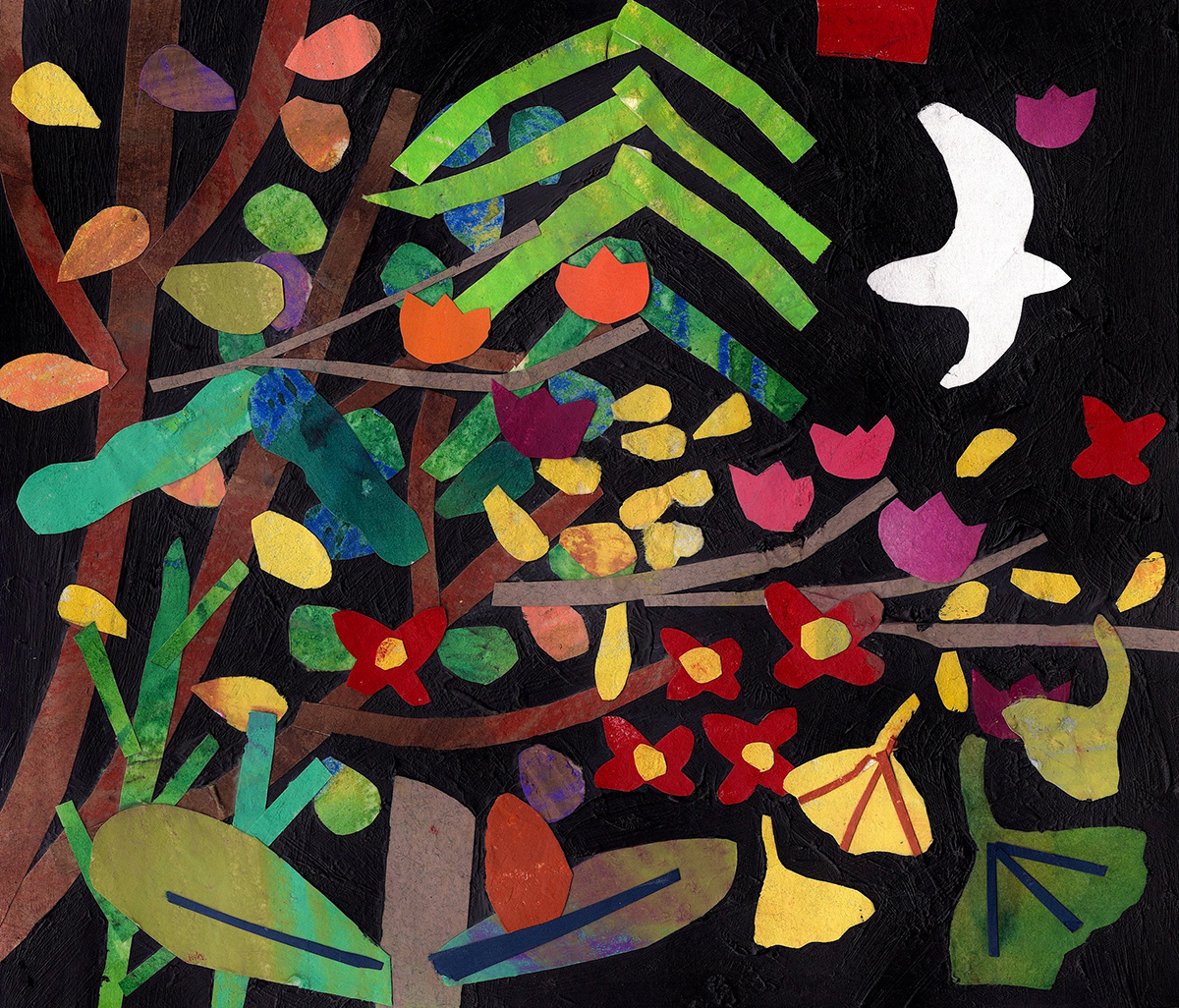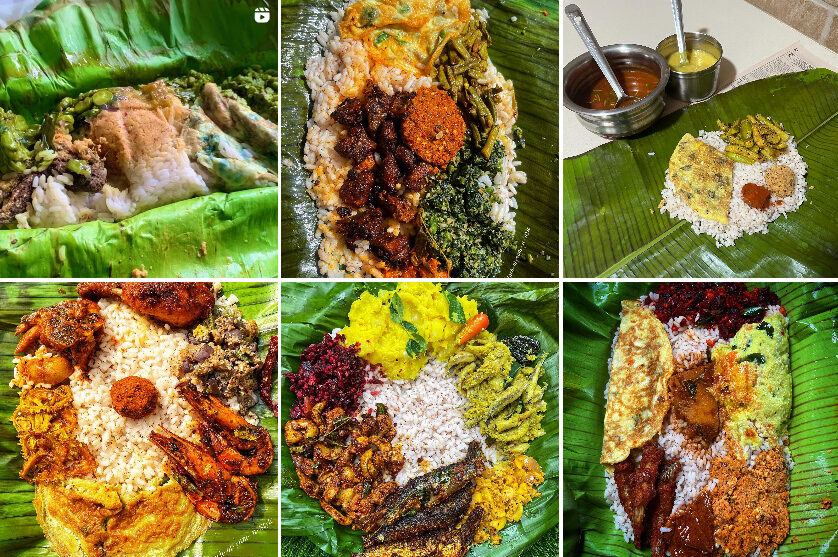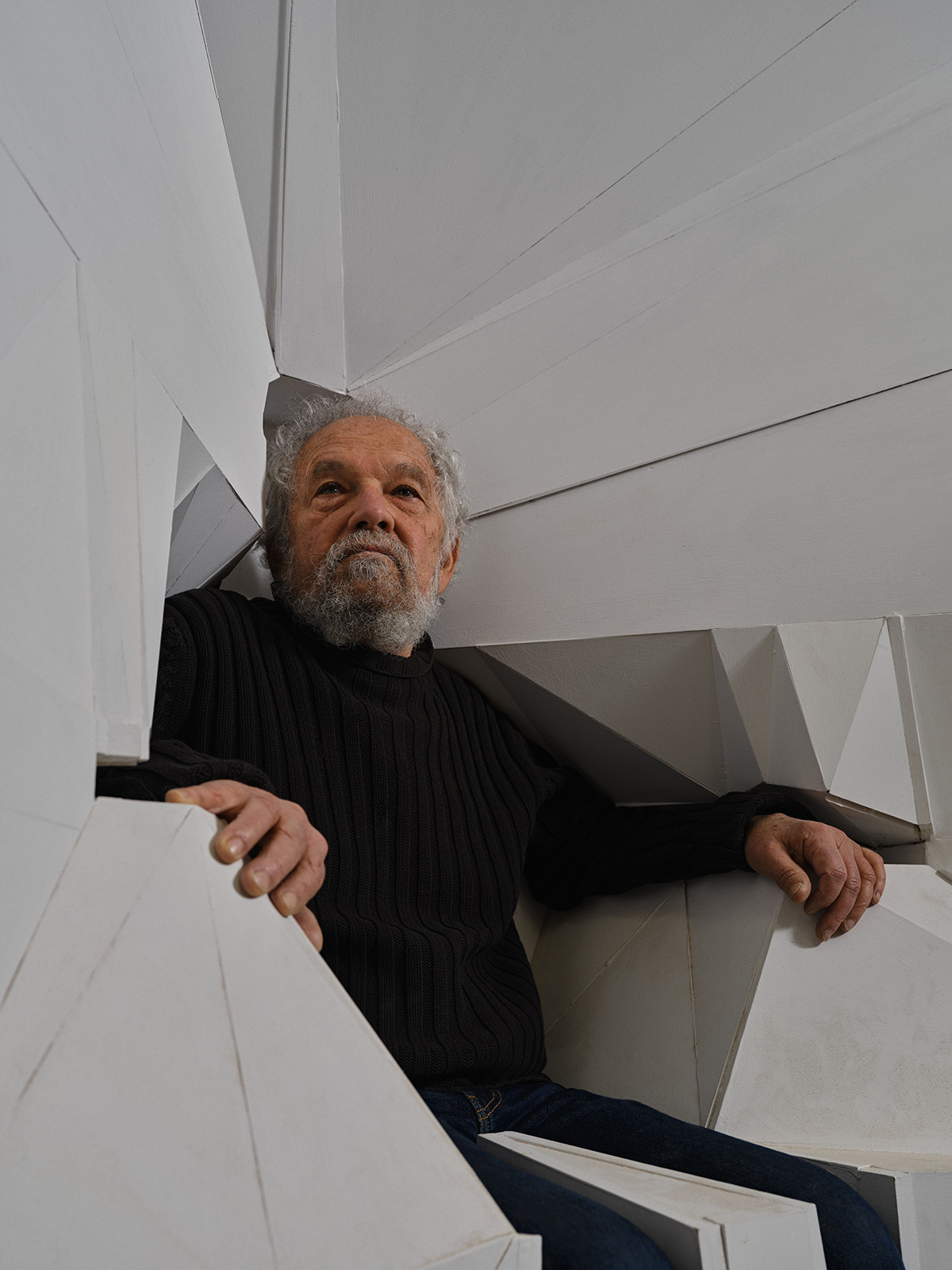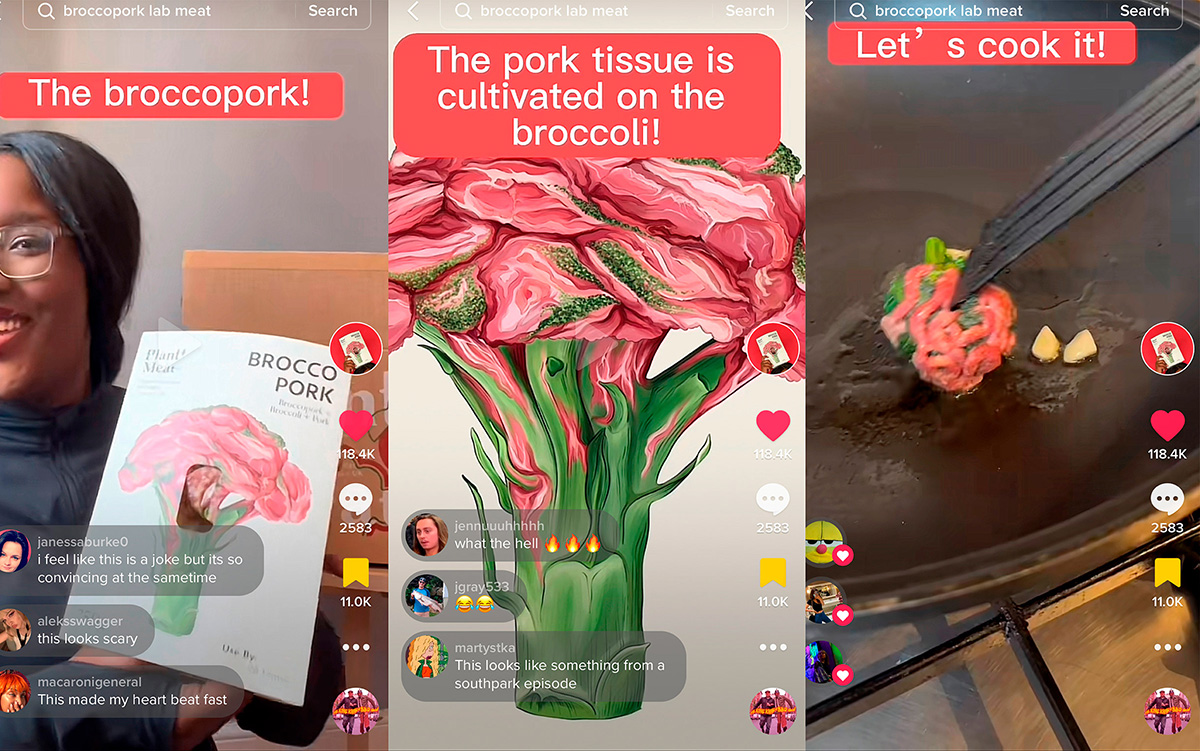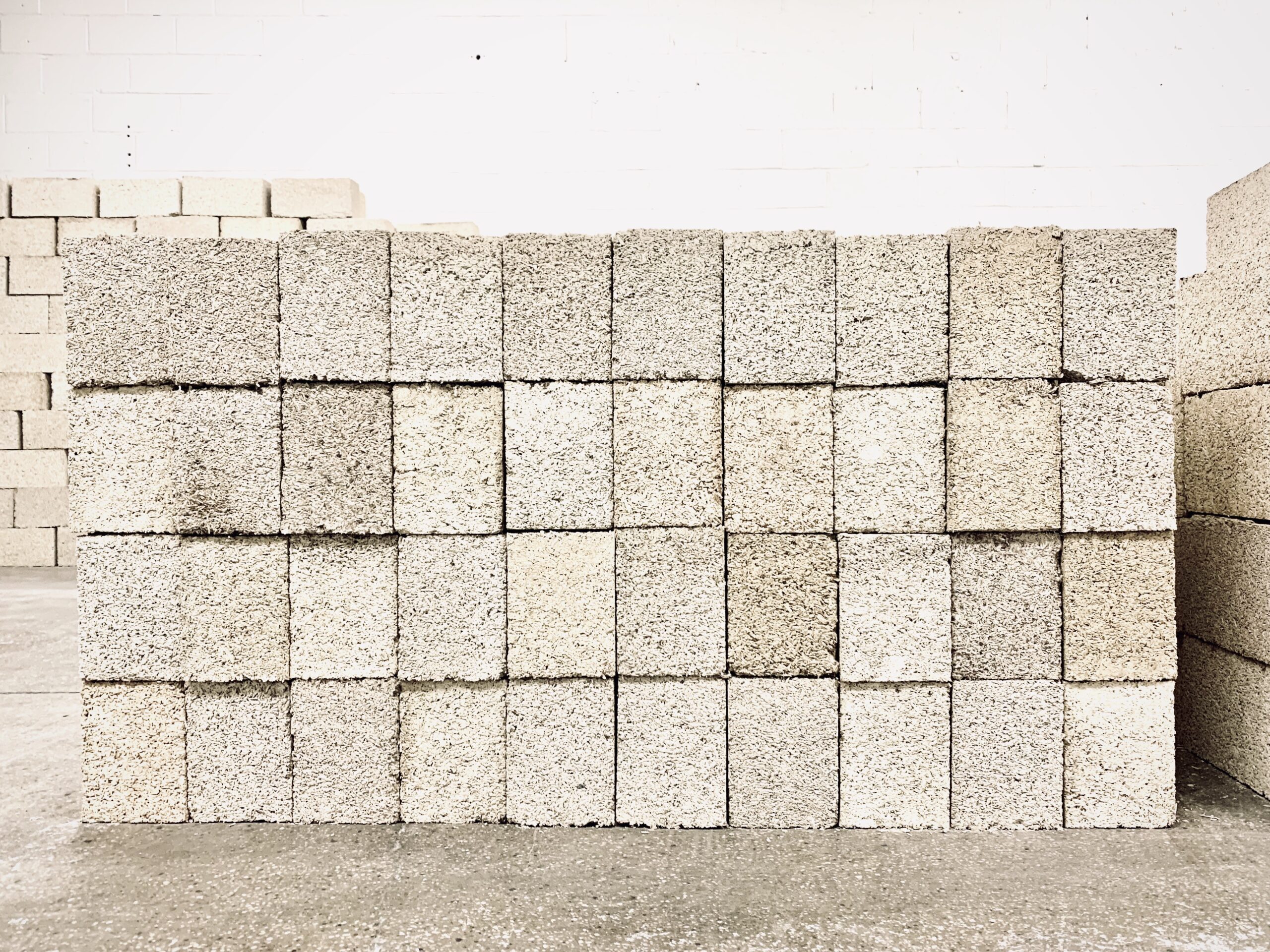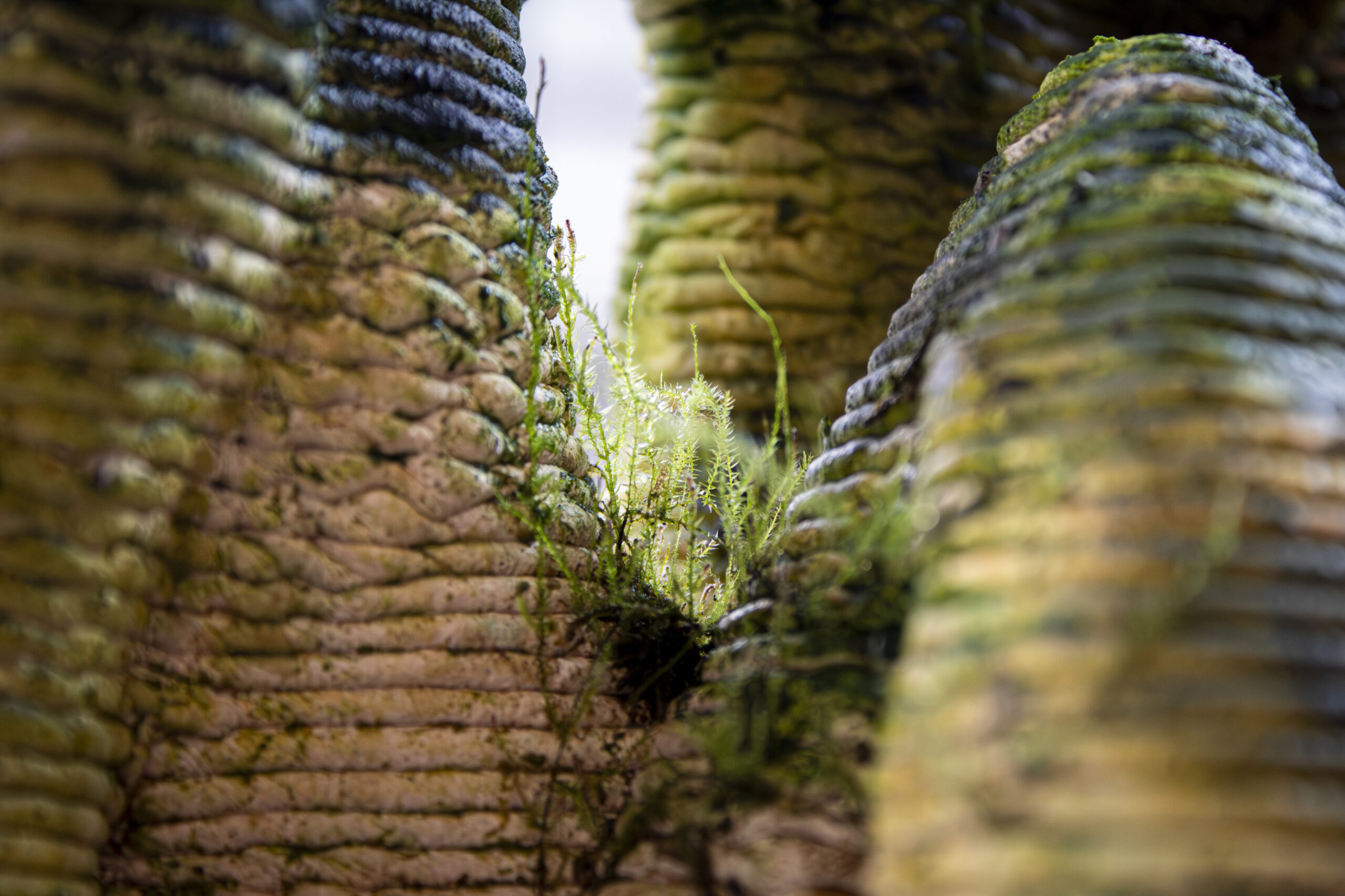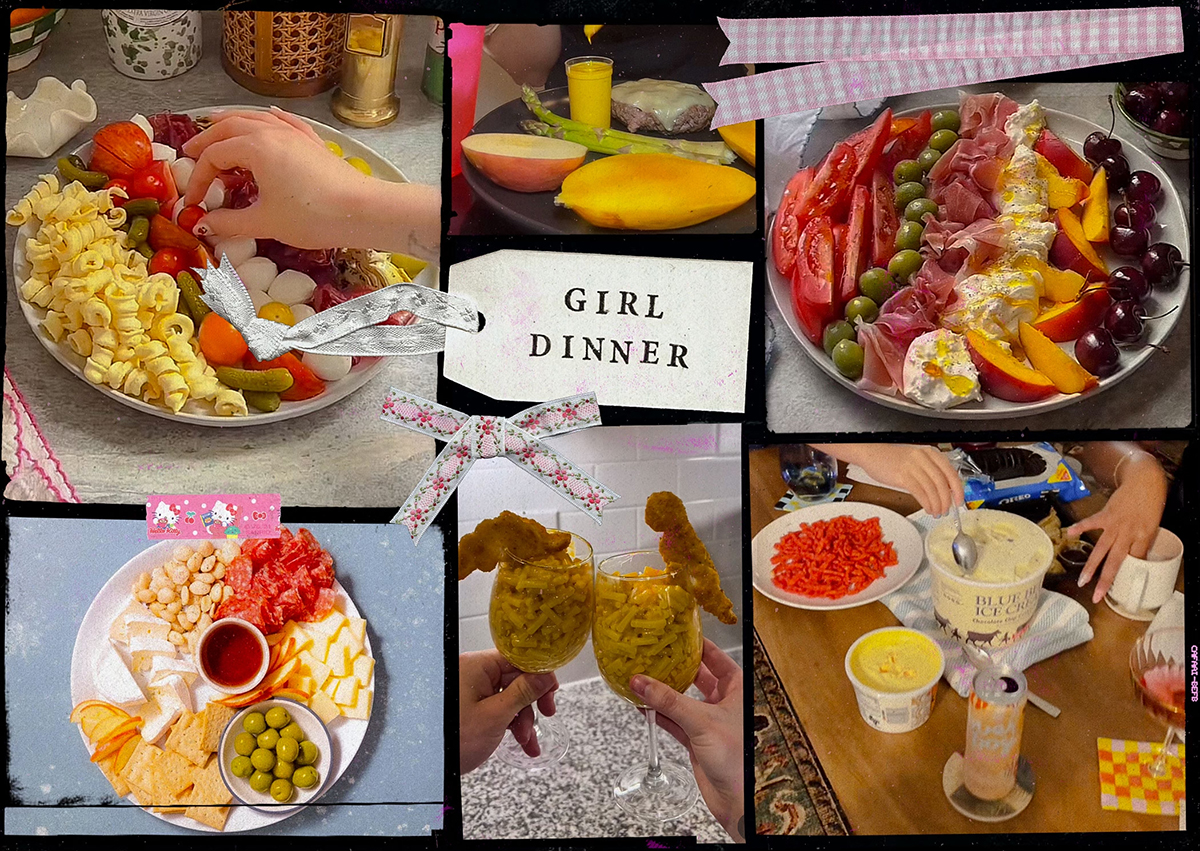Hidden in the previously industrial neighborhood, Marvila, just outside of Lisbon’s center, lies the city’s first and only circular urban farm. While Portugal has built a reputation for being green, Nam, a mushroom farm, is leading a city-wide movement towards more sustainable eating in a food landscape that has not yet caught up to the country’s eco-friendly image.
Portugal sits in a relatively isolated place between Spain and the vast expanse of the Atlantic Ocean. The country, which is 40% farmland and 40% natural land, has branded itself as a playground for eco-tourists interested in nature, from surfing and yoga retreats to ‘eco living’ options. In fact, some of the last hippy and nomadic communities in Europe are here, living in camper vans, on beaches and in communes scattered across the country. The cities too, have benefited from this reputation-building. Lisbon in particular, has spent time trying to attract “digital nomads” in search, like the hippies before them, of a more minimalist lifestyle. The winner of the European Green Cit’ award in 2020, and in a country ranked as “one of the greenest countries to live in”, Portugal’s supposed green credentials offer a lifestyle that the country is keen to retain.
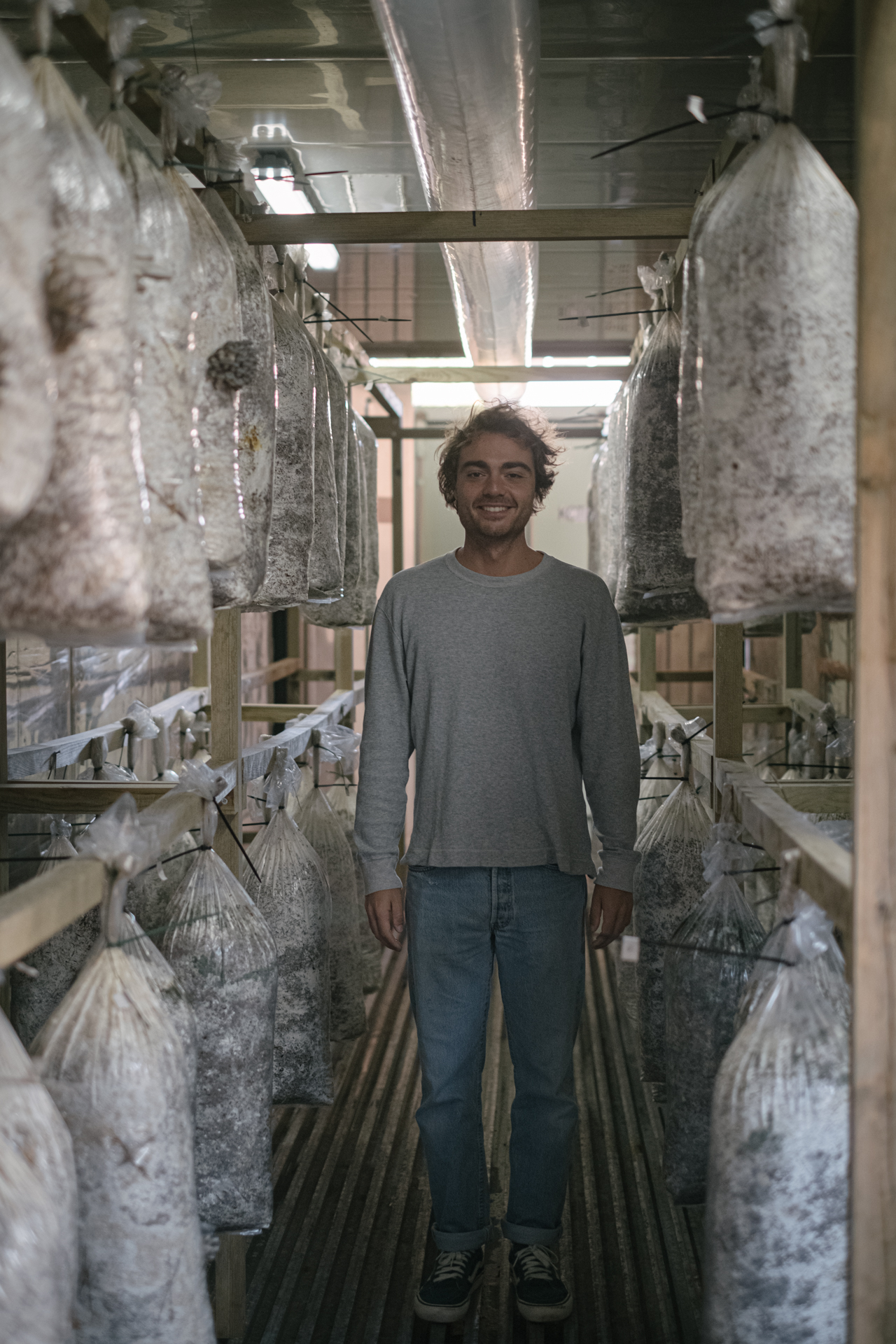
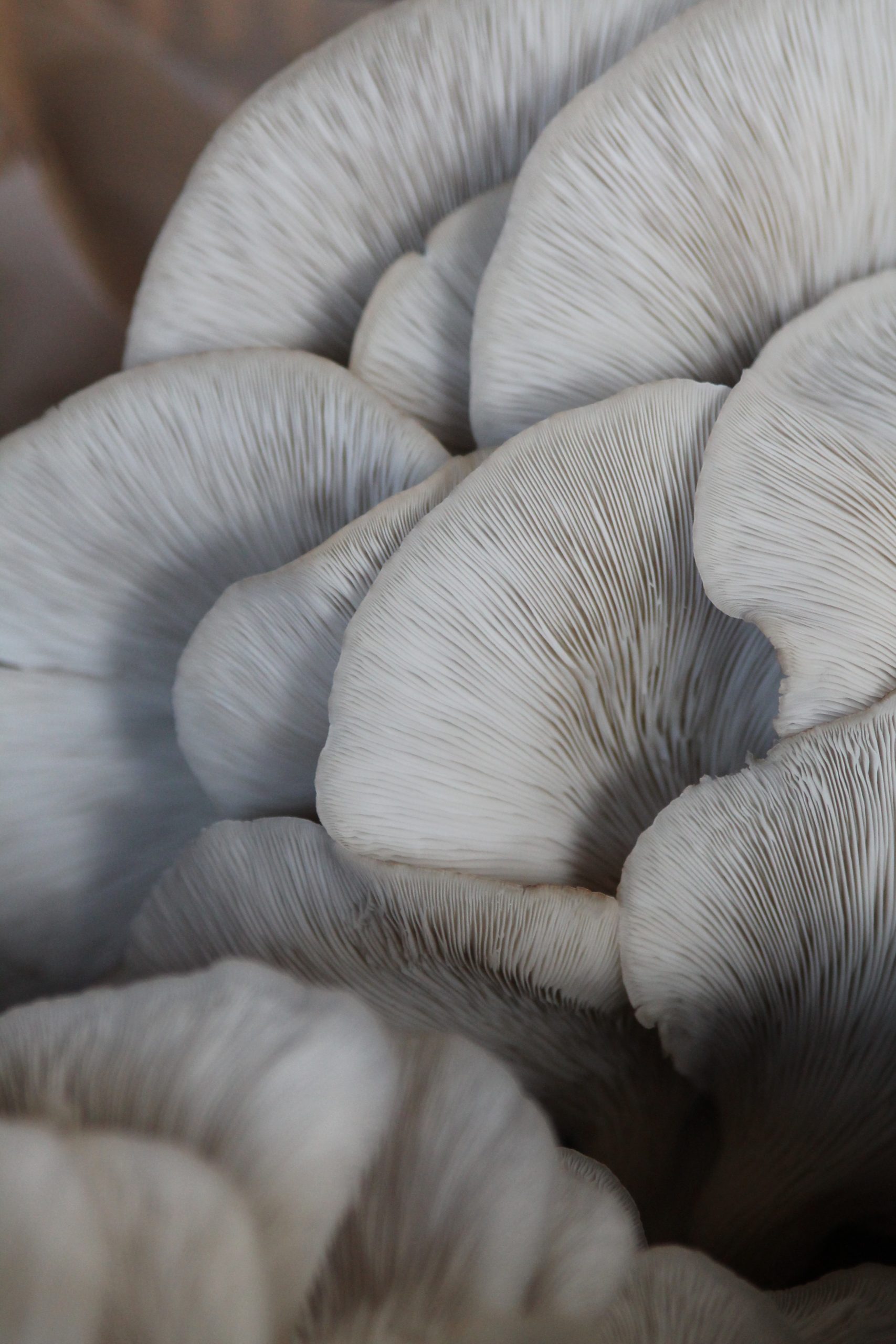
However, it is impossible for residents of Portugal not to recognize major discrepancies between these ‘green’ statistics and reality. This has worsened under the restrictions of the pandemic, with Portugal’s recycling falling over 20% below the average rate of the rest of the European Union according to a recent study. Perhaps those giving these awards have confused environmental consciousness with financial consciousness—a country-wide sense of thriftiness instilled by an economically debilitating dictatorship, revolutions, recessions and brain drain. Here, the influence of low wages and the feeling that the country is still financially vulnerable pervades. The restaurant scene has grown and diversified over the last 5 years to support the city’s expanding tourism industry and the nation’s influx of immigrants. Many new eateries boast of produce that is organic, local or “environmentally friendly” to match the eco-friendly tale that Portugal tells. In fact, as someone who has worked in the food industry here, I find there are very few genuine champions of sustainable eating. More recently, however, a small cluster of food related initiatives have started a movement to match the myth of “green Portugal” —Fruta Feia, a Portuguese social enterprise that sells veg boxes of oddly shaped fruit that weren’t beautiful enough for the supermarket and zero-waste restaurant Sem spring to mind. Nam, built inside a suburban Marvila warehouse is one such initiative that is doing the absolute most for the circular, sustainable hospitality movement.
Initially founded in a basement in the city center, this urban farm has expanded enough in just three years to warrant a move to a larger space. Upon visiting the Nam warehouse, you will find two small gardens in the front and back with raised beds full of mycelium, substrate and plants and a few shipping containers. The farm shares the same space as one of Portugal’s largest, family run coffee companies, Delta. Drawing from their neighbor’s resources, Nam uses waste coffee grounds to produce all kinds of mushrooms, which grow inside a shipping container, illuminated under violet blue light. In the other containers is an enormous, shiny pasteurising machine to sterilise waste coffee grounds and hanging space to house the mushroom-growing substrate that Nam makes themselves.
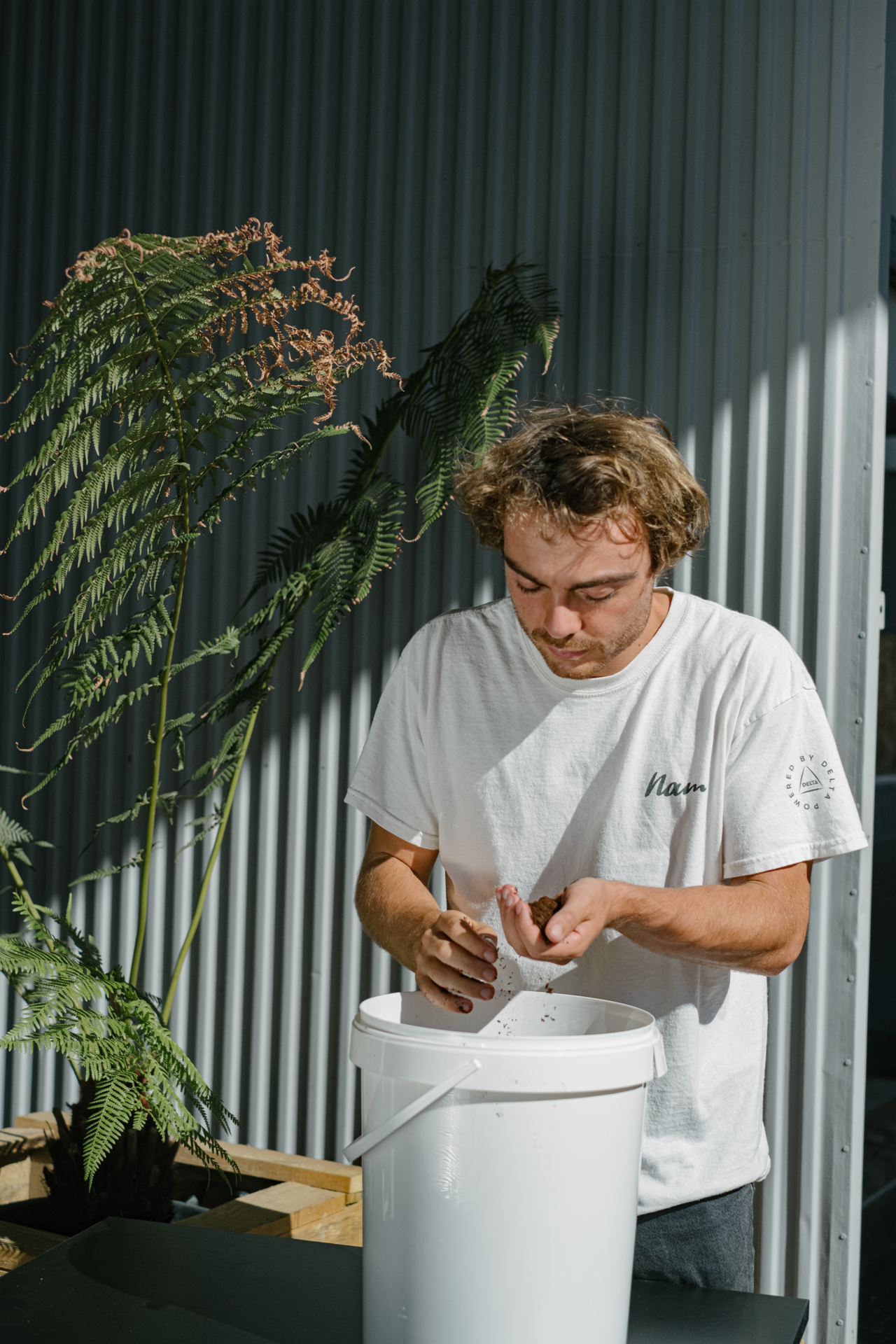
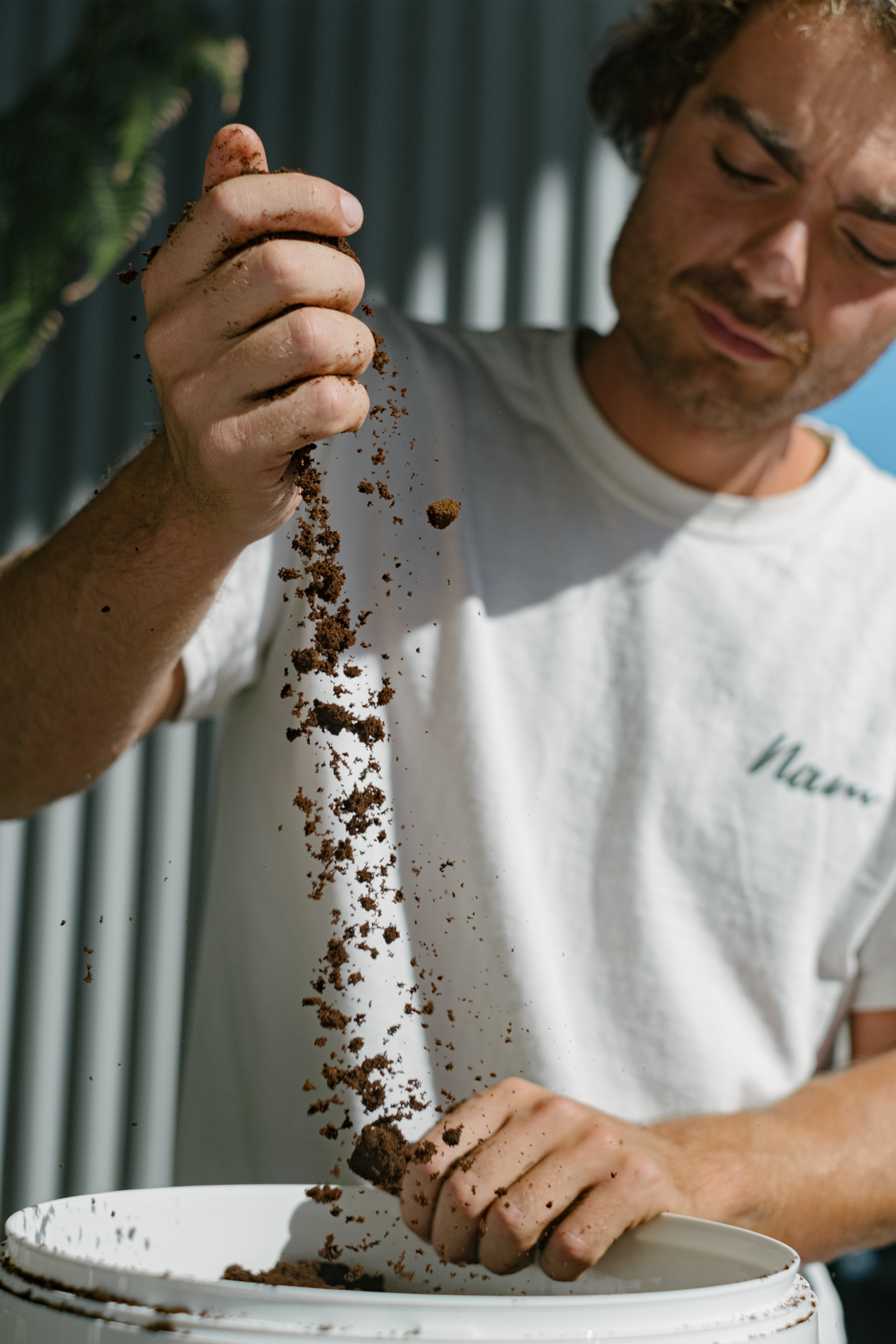
While we can all agree that mushrooms are having a moment globally, the decision to combine waste coffee and mushrooms is a stroke of accidental genius by Nam’s Belgian founder Natan Jacquemin. Combined with the Portuguese love of coffee, it seems to be a perfectly symbiotic relationship. “I started this project 3 years ago whilst finishing my Masters here in Portugal,” Natan tells MOLD, “It wasn’t about mushrooms or coffee waste, but more about circular economies and sustainability and how I could, through entrepreneurship, have a positive impact and change mindsets. I didn’t have a lot of money or experience but mushrooms were something that I could afford to do, so I collected coffee waste, then it took me 6 months to get my first mushroom and I went from there.”
Many of us are already accustomed to adding leftover coffee grounds to soil for our houseplants or garden, so using it to grow mushrooms is not too much of a stretch. Coffee is also practical for mushroom growing in other ways, as Nathan says, “It’s interesting because the mycelium, after growing in our substrate consumes most of the coffee waste so it looks more like straw which is good, especially in Portugal because it’s very hot during the summer and you end up with something to retain humidity. When you make coffee at home you use very few of its nutrients – around 1-2 percent because what you take advantage of is the taste and the caffeine, but the rest (of the waste) is (still) nutrient dense.”
The pleasure of eating a locally grown or foraged mushroom is immensely different to the slightly slimy versions that appear on supermarket shelves, particularly in Portugal, where most supermarket produce is still supplied by monoculture farms that dominate the country’s agricultural industry. Mushrooms are also not a main part of Portuguese cuisine as they are across other European countries such as Natan’s home country of Belgium. At the moment, the mushrooms Nam grows supply restaurants around the city, but Natan has his goals set much higher than just fine dining, “Now, we upcycle 3 – 4 tonnes of coffee waste a month and produce 1 tonne of mushrooms. This is nice but it’s not the impact we want— it’s better than nothing, but we want to upcycle 20 tonnes and 5 or 6 tonnes of mushrooms [per month] to really have an impact and to get there is the real challenge.”
Education, it seems, is key. Nam has already started prototyping and selling mushroom home-growing kits in addition to facilitating educational trips for school groups and summer schools to visit the warehouse. Natan wants to try and create mushroom substrate not just with coffee waste, but with other kinds of waste from the city through partnerships with various municipal organisations. The beauty of using waste from the city is that it is an inexhaustible source, and so mushrooms can be grown all the time.

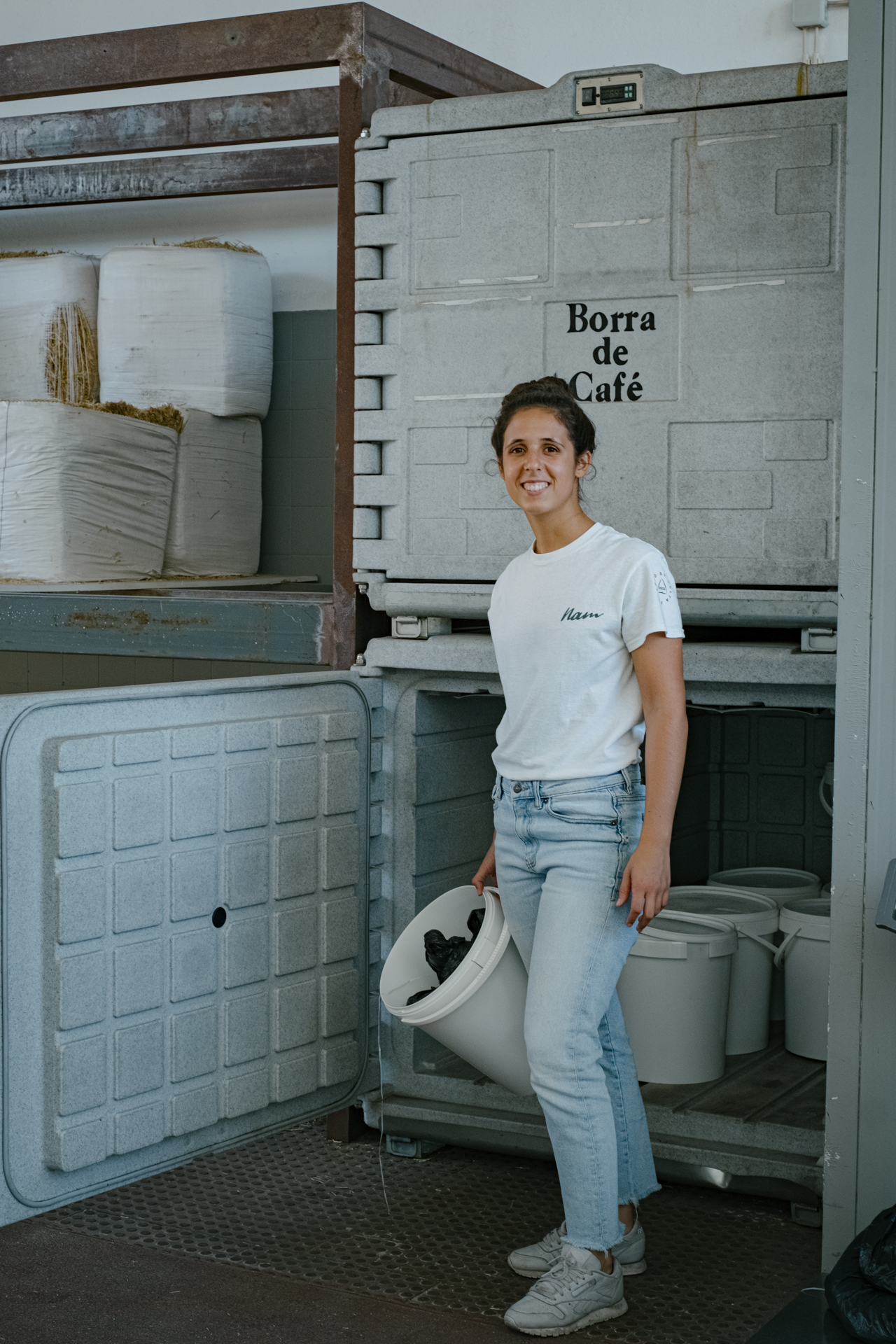
Change often comes by hacking a pre-existing system and partnering with Delta was a game changer, providing a centralised system to collect coffee grounds from offices and cafes around the city that Nam could easily take advantage of. On this new collaboration, Natan says, “In Portugal, you have a few family companies that have vision for the long term. This is the case with Delta. It is hard as an entrepreneur but having partners that are not big companies, but small family run businesses like this is important.”
There are other benefits to working with a well known Portuguese brand — Nam is more likely to infiltrate Portuguese daily habits and gain trust. Overall the reception to Natan’s mushrooms has been good. “People love it and most people are excited,” he tells MOLD, “but there is still a lot to be done for people to actually buy it, which is totally different, because they still don’t really understand why it’s better to buy mushrooms that are locally grown with locally available waste because the Portuguese are still very price sensitive. So this is something that needs to change and people need to be educated about what a circular economy is.”
As for the price of these mushrooms, Nam aims to make the locally grown fungi accessible and affordable to a wider audience. Globally, environmentally friendly products are very often for the wealthy, something that needs to change everywhere, “I don’t want things that are good for the environment to be expensive and bad things to be cheap. If I can [fight against] that, then I can prove that I can have a business model that is scalable and that has a positive impact. This isn’t a criticism, it’s where Nam is too at the moment, but restaurants [in Lisbon] that are circular economy initiatives are still expensive and so you don’t bring these concepts to the mass market… if you cannot compete with traditional industries and ways of doing things, the mainstream is never going to change.” This attitude highlights an ambition that goes beyond mushrooms and reaches to change a wider system.
Natan, like many foreigners who have come to Portugal for a better quality of life, has made the country his home. His vision for Nam is for it to be a part of the community that he now lives in, when asked what his overarching aim for Nam would be, he says, “To centralise all the coffee waste that we receive and deliver these grow kits to a smaller, local farm to cultivate mushrooms and sell to that local community. Imagine that a small neighborhood only consumes 200 kilos of mushrooms a month, so they have one container but a bigger neighborhood would have a larger container. So [mushroom farmers] only sell locally—you create jobs locally and you solve a [waste] problem locally.”
Whilst difficult to achieve, Natan outlines a beautiful vision, one that could be applied to other types of food, or even other products. It is, in essence, going back to the roots of where business, commerce and entrepreneurship began—in local communities. Like the vast mycelium networks that mushrooms themselves make, connecting all living matter to each other, we also need to be as interwoven to the place we live in as much as possible to make a real impact.
